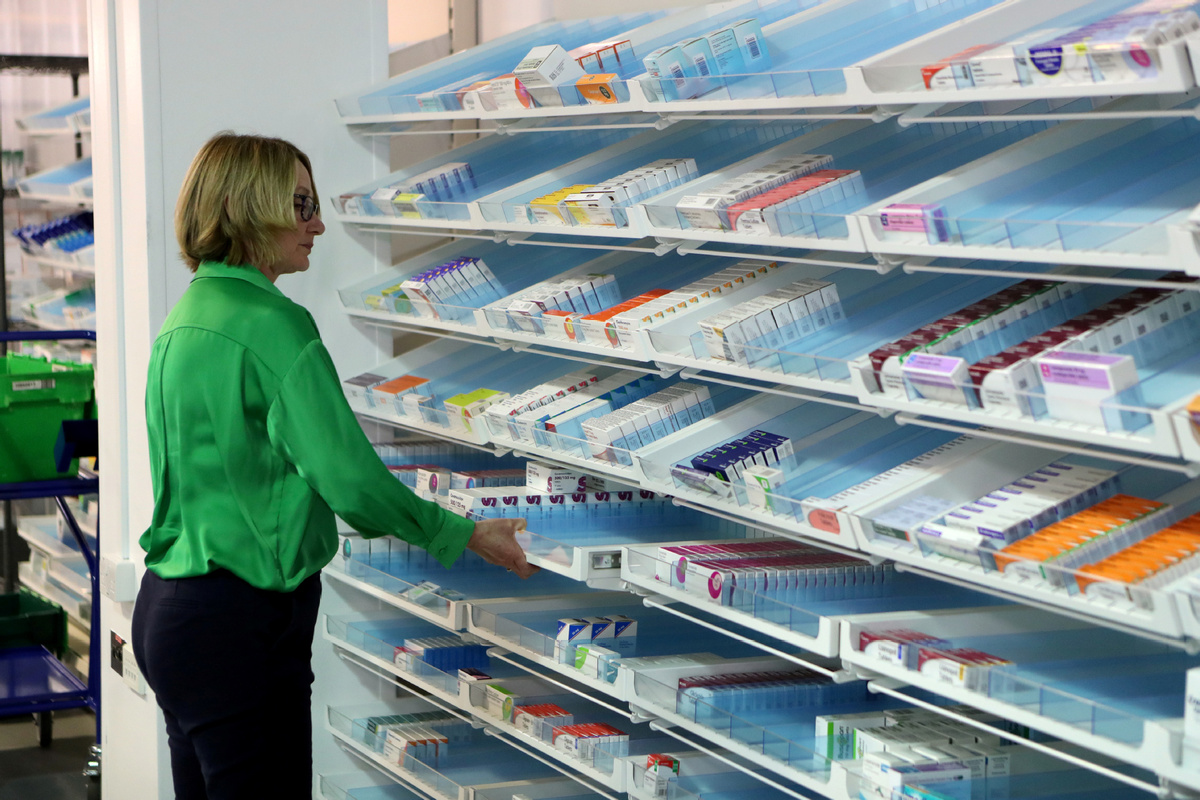Pharma industry sounds Brexit supply-chain alarm


Senior figures in the pharmaceutical industries in the United Kingdom and mainland Europe have issued a joint warning about the devastating impact a potential no-deal Brexit would have on supply chains, and how it could affect the lives of patients.
Last week Michael Gove, the Cabinet minister charged with contingency plans for life after Britain's transitional relationship with the European Union comes to an end, warned of potential two-day waits for lorries to get in and out of the Channel ports because of new customs formalities.
With time for a deal to be agreed running out, Gove will this week go to Brussels for more talks, and the Association of the British Pharmaceutical Industry, or ABPI, and the European Federation of Pharmaceutical Industries and Associations, or EFPIA, have told the Financial Times that if a deal cannot be reached, patients could face delays in supplies of medication of up to six weeks.
Currently, the UK is a member of the European Medicines Agency, under which inspections and tests of goods on one side of the Channel are recognized as being valid on the other, but this will soon change, hence the organizations calling for a "mutual recognition agreement" to avoid hold-ups.
The novel coronavirus pandemic has already put supply chains under stress, and ABPI Chief Executive Richard Torbett said anything that added more problems was an alarming prospect.
"It beggars belief we are asking for trouble at a time when we have a global health crisis," he continued, adding that it was "absolutely inexplicable a mutual recognition agreement for medicines has not been prioritized and cleared up already "by negotiators, as it was purely a technical issue with no impact on wider trade negotiations.
EFPIA Director-General Nathalie Moll backed up his comments, saying such an agreement was "imperative".
The potential disruption to the industry could also come at an economic cost to Britain's successful pharma sector, which currently brings in around 23 billion pounds ($29.5 billion) per year through exports. "We are one of the only sectors in the economy talking about growth," said Torbett.
The Department of Health and Social Care said it was doing all it could to "prepare for all scenarios and protect National Health Service patients over the coming months "and that contingency plans included advising suppliers to build up stockpiles of products.
Gove will meet European Commission Vice-President Maros Sefcovic to discuss the future of the Withdrawal Agreement after Boris Johnson's government revealed plans to override parts of it relating to the status of Northern Ireland, a suggestion that prompted Brussels to say it could launch legal action over breaking international law. But Westminster shrugged off the threat, and the Internal Market Bill, as it is known, will be debated in Parliament on Tuesday.
Meanwhile, Ireland's new Prime Minister Micheal Martin has said that there is still the opportunity for a Brexit deal to be reached but he is not optimistic.
"I believe a deal is the sane and sensible thing to do, and I think all of us as politicians have an obligation to those we represent-and in terms of Brexit that means the least damage possible to workers, to employers and to business and economy," he said, adding that "the (Irish) government is preparing its budget in three weeks' time on the basis that there will be a no-deal Brexit."
Elsewhere, the head of British business lobby the Confederation of British Industry, or CBI, has pleaded for "the spirit of compromise to shine through" and for an agreement to be reached.
Johnson said the cut-off point for reaching an agreement is Oct 15, and as the 9th round of talks began, CBI Director General Carolyn Fairbairn said the prospect of the alternative was so damaging that some common ground must be found.
"A deal can and must be made," she said. "Businesses face a hat-trick of unprecedented challenges-rebuilding from the first wave of COVID-19, dealing with the resurgence of the virus and preparing for significant changes to the UK's trading relationship with the EU.
"A good deal will provide the strongest possible foundation as countries build back from the pandemic.
"It would keep UK firms competitive by minimizing red tape and extra costs, freeing much-needed time and resource to overcome the difficult times ahead."

































